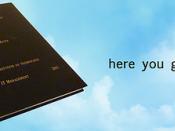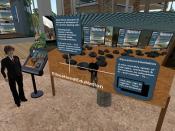Traditionally our schools are responsible for formally
educating our children and young people, and families and
friends supply the informal portions of their educations.
Both of these portions of a child's education are of equal
importance. They both contribute greatly to a child's
learning experience. They affect the way a child thinks
and communicates with society.
"Formal education is the hierarchically
structured, chronologically graded 'education system',
running from primary school through the university and
including, in addition to general academic studies, a
variety of specialized programs and institutions for
full-time technical and professional training."(Smith)
Formal education contributes greatly to a child's
development because this is how the child will learn the
sciences and arts. It helps people acquire the skills they
need for such everyday activities as reading a newspaper or
managing their money. It also gives them the specialized
training they may need to prepare for a job or career.
People must meet certain educational requirements and get a license or certificate before they can practice accounting, law, or medicine.
"Informal education is a truly lifelong process
whereby every individual acquires attitudes, values, skills and knowledge from daily experience and the educative influences and resources in his or her environment - from family and neighbors, from work and play, from the market place, the library and the mass media."(Smith) Informal education contributes greatly to a child's development because this is were he/she will learn all the other things about life that they wouldn't learn at school. This has more influence on how the child will learn to interact with others. Informal education is an essential part of a child's education; this is how the child will become "street smart". "Street smart" means that the child will obtain the knowledge and skills to survive by his/her self in...


